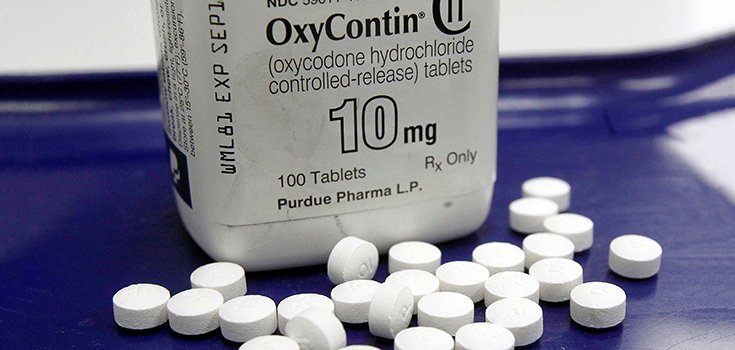OxyContin Maker Wins Patent for Addiction Treatment

A member of the family that owns Purdue Pharma – the same company that makes OxyContin – has been awarded a patent for a treatment for opioid use disorder. [1]
Purdue Pharma is currently being sued by more than 1,000 jurisdictions for allegedly fueling the opioid crisis with its OxyContin painkiller. But Dr. Richard Sackler, one of 6 inventors of the new patent, doesn’t seem to be bothered by that. He is more than willing to gain financially from the very problem he himself helped create, even if it means generating a great deal of criticism in the process.
Colorado is one of the states suing Purdue Pharma. In a statement, Colorado Attorney General Cynthia Coffman said: [2]
“Purdue’s habit-forming medications coupled with their reckless marketing have robbed children of their parents, families of their sons and daughters, and destroyed the lives of our friends, neighbors, and co-workers. While no amount of money can bring back loved ones, it can compensate for the enormous costs brought about by Purdue’s intentional misconduct.”
In the lawsuit, the state accuses Purdue of downplaying the risk of addiction associated with opioids and exaggerating the medicine’s benefits. The lawsuit further alleges that the drug maker “advised healthcare professionals that they were violating their Hippocratic Oath and failing their patients unless they treated pain symptoms with opioids.”
It’s enough to turn your stomach.
Related Read: The Opioid Crisis Deemed a National Emergency – So What Happens Now?
Profiting from People’s Pain

There were more than 63,000 drug overdoses in the United States in 2016, and more than 66% of them were attributed to opioids, according to the most recent data from the U.S. Centers for Disease Control and Prevention (CDC).

The patent is for a new formulation of buprenorphine, a medication known to help people kick their opioid addiction. The U.S. Food and Drug Administration (FDA) has already approved it in tablet and film form, but the patent is for a wafter version of the drug that dissolves even faster than existing forms when placed under the tongue. [1]
The patent states that the faster buprenorphine dissolves, the less risk there is for diversion.
As mentioned, Purdue Pharma is facing more than 1,000 lawsuits from cities, states, counties, and tribes. But a case brought by Massachusetts recently named the Sackler family as defendants.
Read: Washington City Sues OxyContin Maker over Opioid Epidemic
Right now, Congress is seeking from Purdue a copy of a deposition from Sackler that was taken as part of a lawsuit brought by Kentucky against Purdue. Though the case was settled in 2015, it marked the only time a member of the Sackler family was questioned under oath about their role in the marketing of OxyContin and what Purdue knew about the addictive nature of the opioid painkiller.
In the patent, Dr. Sackler doesn’t even attempt to hide the fact that he’s trying to profit off of other people’s suffering. The description for the patent justifies the need for a new form of opioid addiction treatment by pointing out that people addicted to OxyContin are often willing to break the law in order to get their “fix.” Public safety and law enforcement costs associated with addiction are cited in some of the lawsuits against Purdue.
The description of the patent also states that buprenorphine could also be used to treat pain in people and animals.
Purdue Made Efforts on Paper…
Purdue is trying to show that it is taking steps to address the opioid crisis. The pharmaceutical giant has donated money to the National Sheriffs’ Association to purchase naloxone – a drug that can reverse an opioid overdose – and train law enforcement on its use. It has backed safer prescribing efforts, and in early September 2018, Purdue contributed $3.4 million to a company working on an inexpensive naloxone nasal spray.
…However
There is no question that Purdue Pharma is at fault for a pretty big chunk of the opioid crisis. In 2007, 3 top current and former company employees pleaded guilty to criminal charges, admitting that they falsely duped doctors and their patients into believing that OxyContin was less addictive than other opioid analgesics. It was reported earlier in 2018 that Purdue planned to stop promoting the drug. [2]
Luke Nasta, director of Camelot, a New York-based treatment center for drug and alcohol addiction, said:
“It’s reprehensible what Purdue Pharma has done to our public health.”
He added that the Sackler family “shouldn’t be allowed to peddle any more synthetic opioids – and that includes opioid substitutes.”
Sources:
[1] STAT (featured image source)
